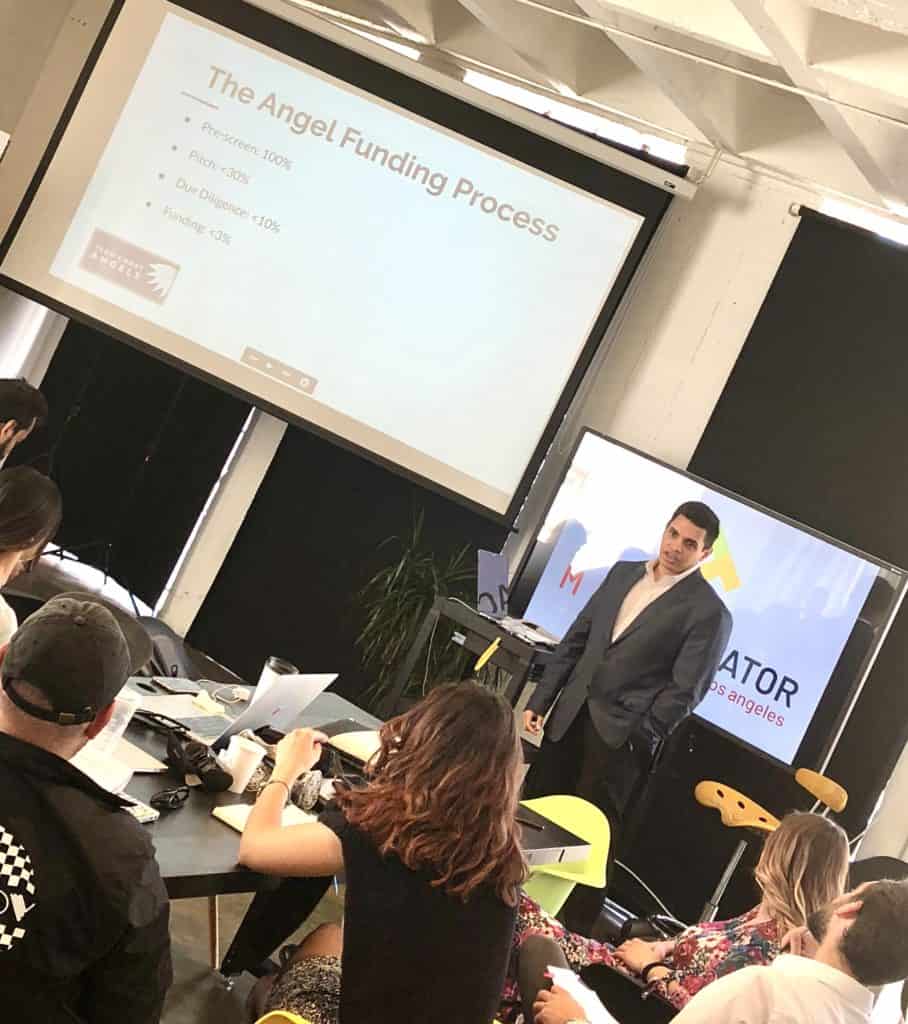
How to Get Funding in the US for International Startups: A Comprehensive Guide
There are more opportunities than ever for startups to succeed in the current business landscape. However, you need access to funding to take advantage of these opportunities. Securing financing can be difficult for international startups, as getting access to investment capital within the US can be complicated and confusing.
In this comprehensive guide, we will walk you through the entire process of getting funding in the US for your startup. We will cover everything from the current startup climate to preparing your pitch deck. Let’s get started!
Assessing the Current Climate of the US Startup Environment
The current climate of the US startup funding environment has more opportunities than ever. In 2022 the US startup funding environment is projected to be valued at $484.33 billion, a sizable increase from 2017 when the startup funding environment in the US was estimated to be worth $337.78 billion (Statista).
Startups are growing in popularity, and capital is more accessible than ever. If your startup is part of this growing community in 2022, you may access funding through venture capital firms.
The booming economic climate is a unique and special time for startups to be pioneers and gain ground in the market. By the end of 2022, venture capital funding is expected to reach somewhere between $111 billion and $136 billion. This information should give you a good idea of how necessary access to financing is for US and international startups.
Now, companies are willing to take risks and work towards the opportunity to succeed as long as they have sufficient funding available.
Last year, the vast majority (86%) of VC funding went to early-stage startups (like seed and Series A rounds). The most active investors were venture capital firms like Sequoia Capital, with $8.3 billion in investments across 183 companies, and Andreessen Horowitz, with $5.7 billion invested across 124 companies.
These numbers depict that if you want to get funding in the US for your startup, it’s best to aim for early-stage investors who are more likely to invest at this stage.
The startup funding environment in the US is estimated to be worth 4x as much as its nearest rival, China, making the US the best choice for an investment environment for many international entrepreneurs. Even if you are overseas, the US provides unique opportunities to secure funding for your startup that may not be available in other countries.
Additionally, the climate in the US is hugely supportive of entrepreneurs and new business concepts, with the US governments offering tax breaks and funding benefits. It will be much easier for an international business to get funding in the US than in other countries.
Looking back, we can’t ignore the fact that 2021 was a challenging year for startups due to the coronavirus pandemic. Many experienced a “hype-cycle” during their infancy, failed quickly, and did not have the opportunity to succeed.
Many companies, however, began to grow during this time and were able to take advantage of the lack of competition. These companies leveraged their potential to gain access to funding quickly, and the climate of the startup ecosystem began to flourish.
Because these companies are now more prominent than they would have been otherwise, the total market valuation of startups is higher than ever. As the pandemic begins to subside, there is no better time to take advantage of the industry’s growth.
Types of Startup Investors and Where to Find Them
The typical Series A and B rounds were raised in Silicon Valley and New York (also known as the US’s ‘startup hubs’). Last year, the top three states for startup funding were California, New York, and Massachusetts. You’ll likely want to head to these hot spots if you’re looking for the best chance of landing some venture capital for your startup.
As of 2022, the most active investors in startups are:
1) Accelerators and Incubators – They focus on helping entrepreneurs build businesses with a high likelihood of success, and then they take equity (usually around 3%) in those companies. Accelerators like Y Combinator and TechStars are early examples of this model.
Today, corporations like Airbus Ventures and business development companies (BDCs) like Accion USA invest in startups.
2) Angel Networks – This group of investors comprises successful entrepreneurs, family offices, high net worth individuals, and occasionally small venture capital firms that come together to fund new companies.
3) Corporate VCs – Corporates like Qualcomm Ventures and Intel Capital may look like traditional venture capital firms, but where they differ is that they focus on investing in startups to build strategic relationships with them rather than doing the same purely for financial returns.
4) Investment Funds – This group includes private equity funds and hedge funds. Investment firms typically make more significant investments in startups, but they intend to sell their shares later for a higher return.
5) Venture Capital Firms – These are professional finance companies that invest on behalf of accredited investors (like pension funds or insurance companies) and wealthy individuals. Venture capitalists typically look to invest $100,000 to $10 million in a company.
6) Corporate Incubators – This group invests in companies to help the corporation reach its growth and revenue targets.
7) Angel Investment Clubs – These are informal groups of business people who come together to invest their own money into startups. Club members may use a standardized due diligence process or elect to follow their intuition.
Each of these different investor types has advantages and disadvantages. Choosing the right one will come down to assessing what your business needs most. Be sure to shop around when choosing a VC to pitch.

Getting Funding in the US for Your Startup: 5 Steps
These five steps will help you get funding in the US for your startup. However, you’ll need to have a clear idea of what your project is about and proof that it is worthwhile. It’s vital that you know how the business will operate and why it’ll be or is currently thriving. If you can build a team that is also passionate about your business, you’ll have a real shot at getting funding.
1. The first step when trying to obtain international funding in the United States is understanding what kind of investors you should be targeting. We know many investors are out there, from those who only invest in specific industries to those who focus on investing in individuals/leaders. Spend some time weighing your different options before reaching out.
2. Get together information about US laws and regulations that may affect your business. Many countries have different guidelines for conducting business, impacting whether or not the deal is viable. At this point, you should also find native legal counsel to assist you with any legal issues that may arise during the process.
3. Hire a translator to aid in communication and documentation. You will need to communicate with your potential investors, and it’s crucial that you understand them. A native US translator will better understand any cultural or language barriers that may exist and can advise you on how to deal with them. You can find them using freelance services, like Upwork.
4. Begin building rapport with US-based VCs. Ask for assistance in gathering appropriate documentation and pertinent data about your business. If you can provide potential investors with quality documentation ahead of time, it will make the investment process much smoother.
5. Prepare and Pitch your business to VCs. A pitch deck s is a critical part of the investment process, and it’s essential to come prepared. Work with your translator on a clear, direct pitch that articulates your business and the value you provide. When pitching, follow proper industry standard pitching practices. Be prepared to answer complex questions like why you need the investment, how it will be spent (capital expenditures), and what kind of return the investor can expect.
Once you have pitched, the waiting game begins. Be attentive to all communication channels established with any potential investors. Communication is key in this phase of the funding initiative.
6. Utilize the resources available. Accelerator programs, incubators, startup networking functions, online information sessions, virtual entrepreneur communities, and other resources can assist your International startup to find funding in the US.
M Accelerator is a readily available resource geared towards helping startups foreign or located in the US by offering extensive resources. In addition to providing mentors, coaches, events, and helpful articles for startups, we also assist startups with concept validation, product persuasion, a strategically developed marketing strategy, and pitching guidance.
Preparing a Pitch Deck: Don’t Overthink It
Preparing a pitch deck doesn’t have to be complicated. You can quickly create a great deck with the correct information and structure. Your pitch deck should be a concise yet comprehensive business plan that is easy to understand, appealing to investors, and shows a clear potential for scalability.
Step 1. Figure out and understand what you and your startup do. A well-developed process is crucial because it will provide a foundation for all other work to be completed. You and your co-founders need to understand the problem you’re solving and whom you’re solving it for.
Step 2. Research how other companies have gained funding from the US. Look at their pitch decks and learn from how other startups have improved their business concepts, making it all the way through funding.
Step 3. Put together a list of important information, data, and figures that will help explain your startup. Data visualization is vital as investors use this information to determine your business’s potential. Be sure to check all information for accuracy before including it in the deck. Add any supporting documentation or media that can help strengthen your pitch.
Step 4. Thoroughly read through your pitch deck before showing it to anyone. Take note of any spelling and readability. Work with a native US translator if necessary. Comprehension is vital.
After you have finished preparing, hold an investor meeting to pitch your business. Prepare yourself by practicing your pitch with your translator before the meeting. Remember to be confident, clear, and direct when pitching.

Don’t Get Scammed
When seeking investment capital from US-based investors, it’s important to be aware of the many scams that exist. Here are a few tips on how to avoid them:
– Be wary of fake offers for a loan or a grant. US grants do not require any repayment and can be applied to many different purposes. Scammers will disguise themselves as the federal government, but they simply attempt to steal your identity or money. If you have been contacted by someone posing as a federal agent, send them a fake email and then immediately report the incident.
– Don’t accept offers from instant lenders. Scammers often use these to get access to your financial information or money. Anyone who promises you a fast loan is likely trying to get something from you in return, so do not provide them with any of your data if they request it.
-Do not do business with investors that only ask for a percentage of your business. If you’re asked to give up part or all of your company, it is most likely a scammer or someone trying to take advantage of you. Legitimate investors will offer fair capital in exchange for equity and agree with you on what they expect from the investment. Never give away a piece of your company based on what someone “promises” to do.
-Be wary of investors who promise to get you a meeting with the US Ambassador, government officials, or other high-profile individuals. These meetings are most likely impossible and can be used to access your personal information. If you’ve been contacted by these types of people or their assistants (who often pose as journalists), do not provide them with any information.
-Take caution when wiring money, especially if it’s coming from an individual you have never met in person. Investors rarely operate this way. This is most likely a scammer attempting to access your personal information or funds. Only use this method when dealing with people you know and trust face-to-face.

Getting Funding Is Possible
The US startup funding environment is highly competitive, and it can be difficult for international startups to get access to the investment capital they need to succeed. However, by following these tips and advice, you can increase your chances of securing the funding you need. Remember to utilize available resources, do your research, put together a strong pitch deck, and practice your presentation before meeting with potential investors.
Most importantly, always be aware of investment scams and avoid them. Finding foreign startup funding in the US can be challenging, but it’s possible if you have access to the correct information.
To get more tips on finding investment capital within the US, visit M Accelerator’s website.



